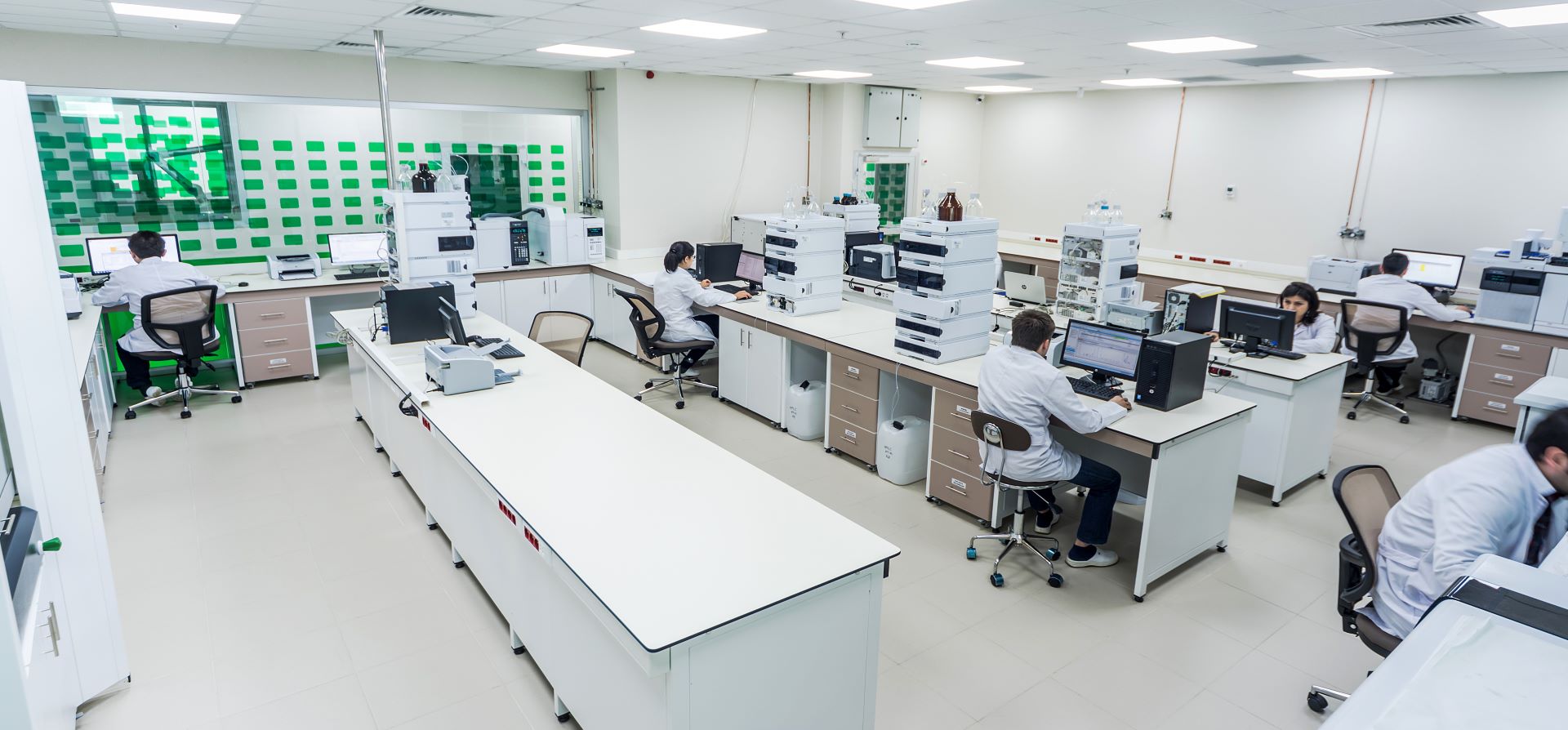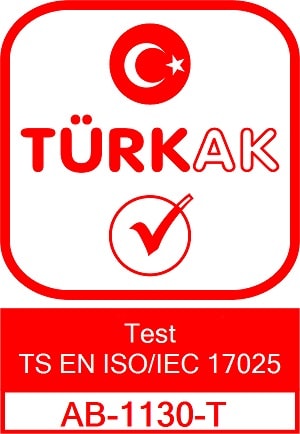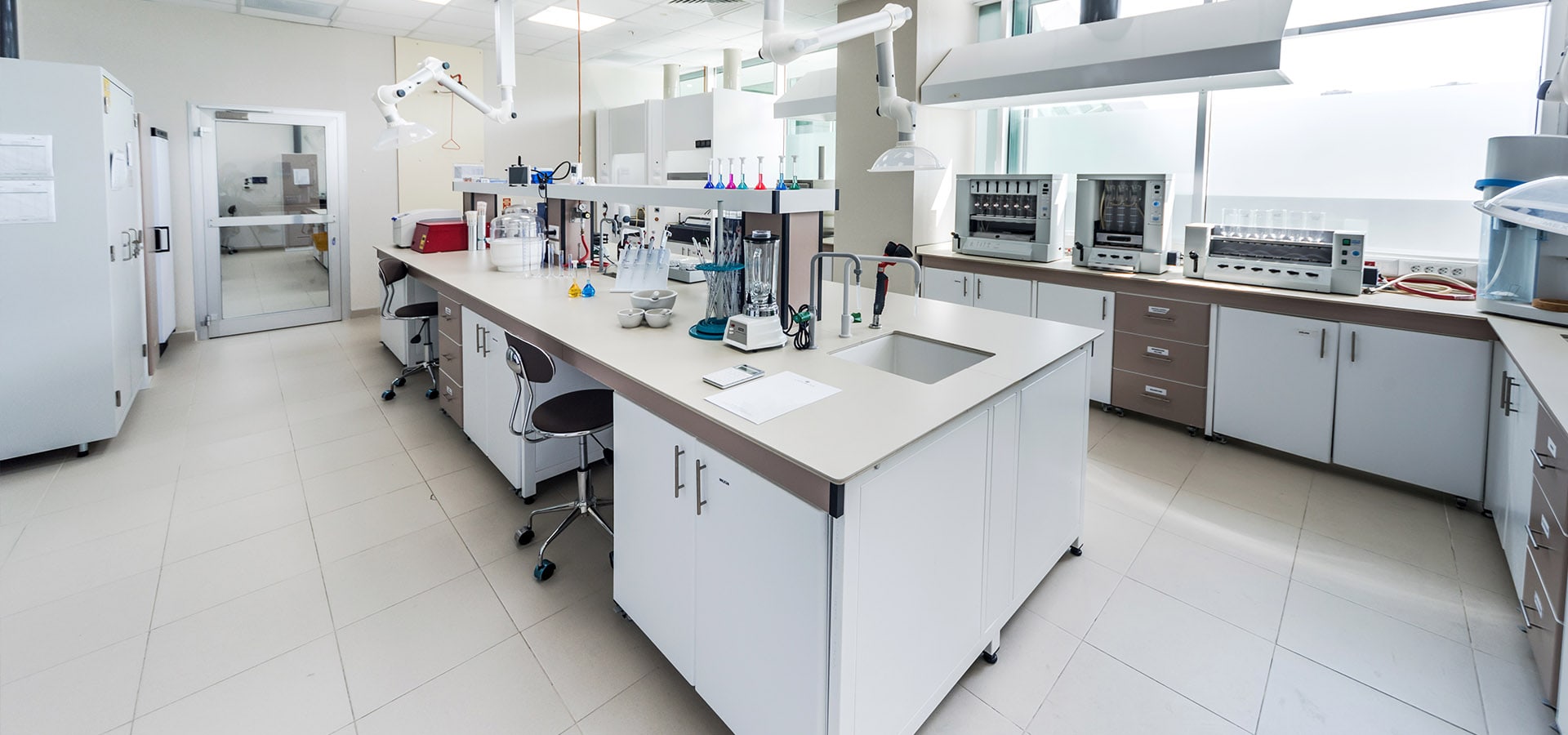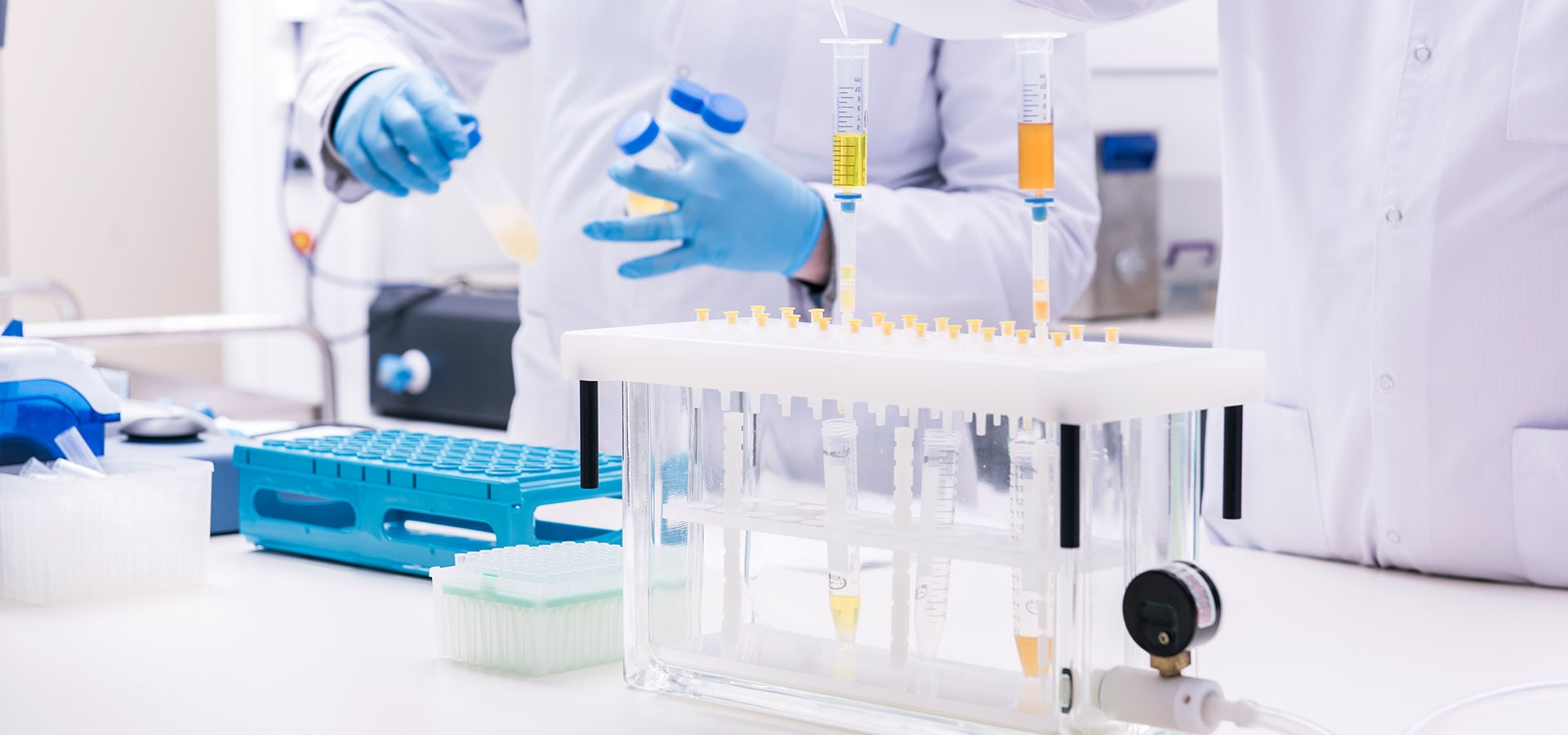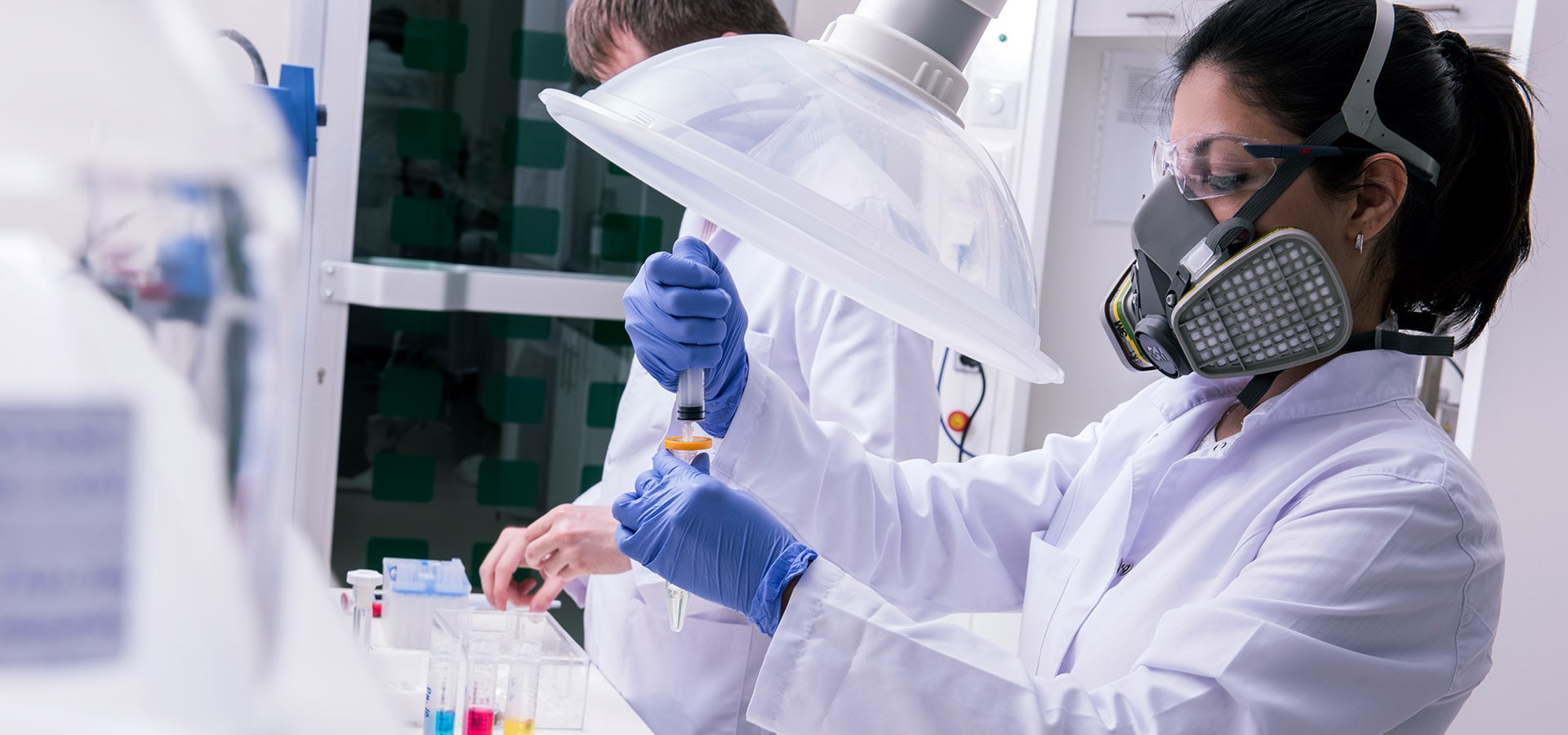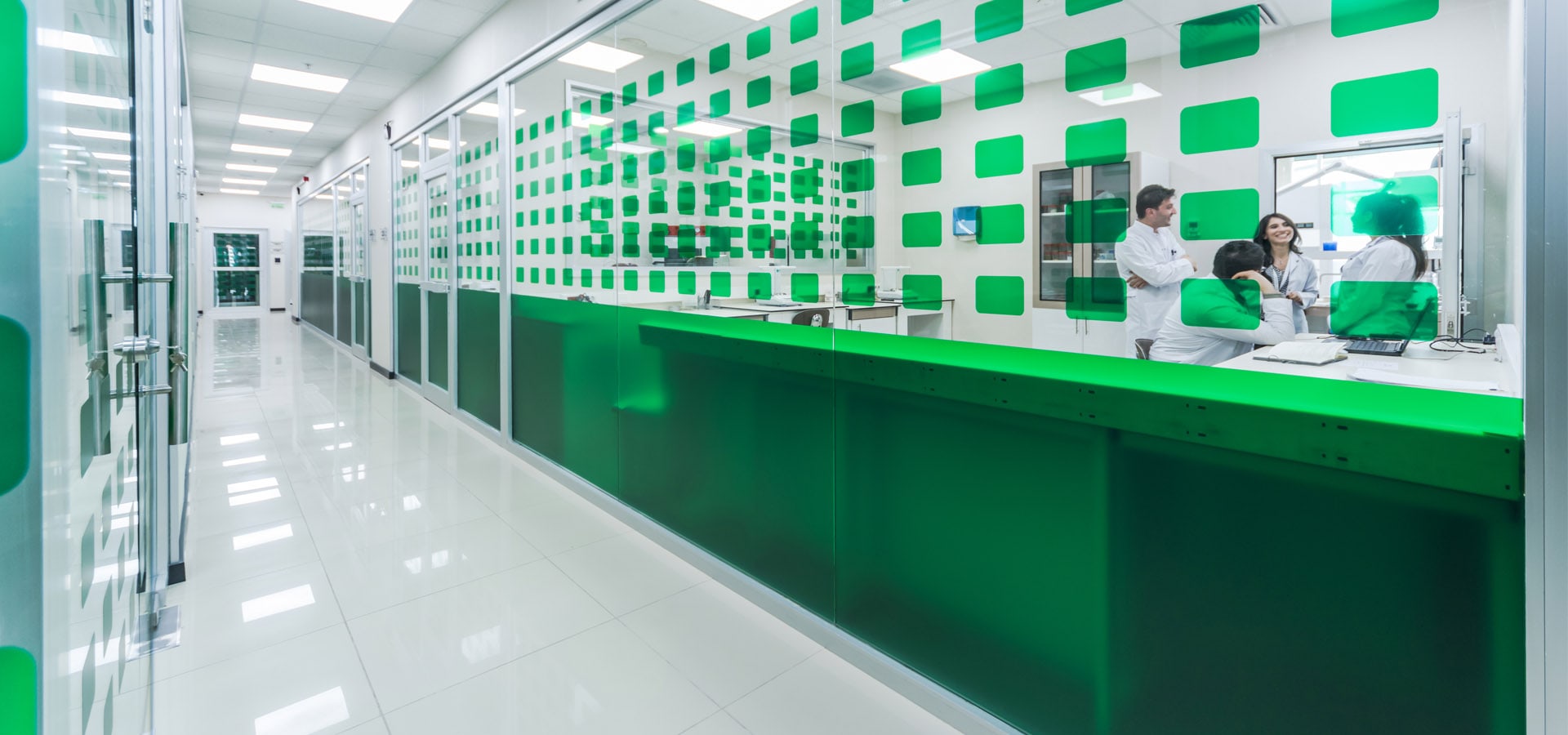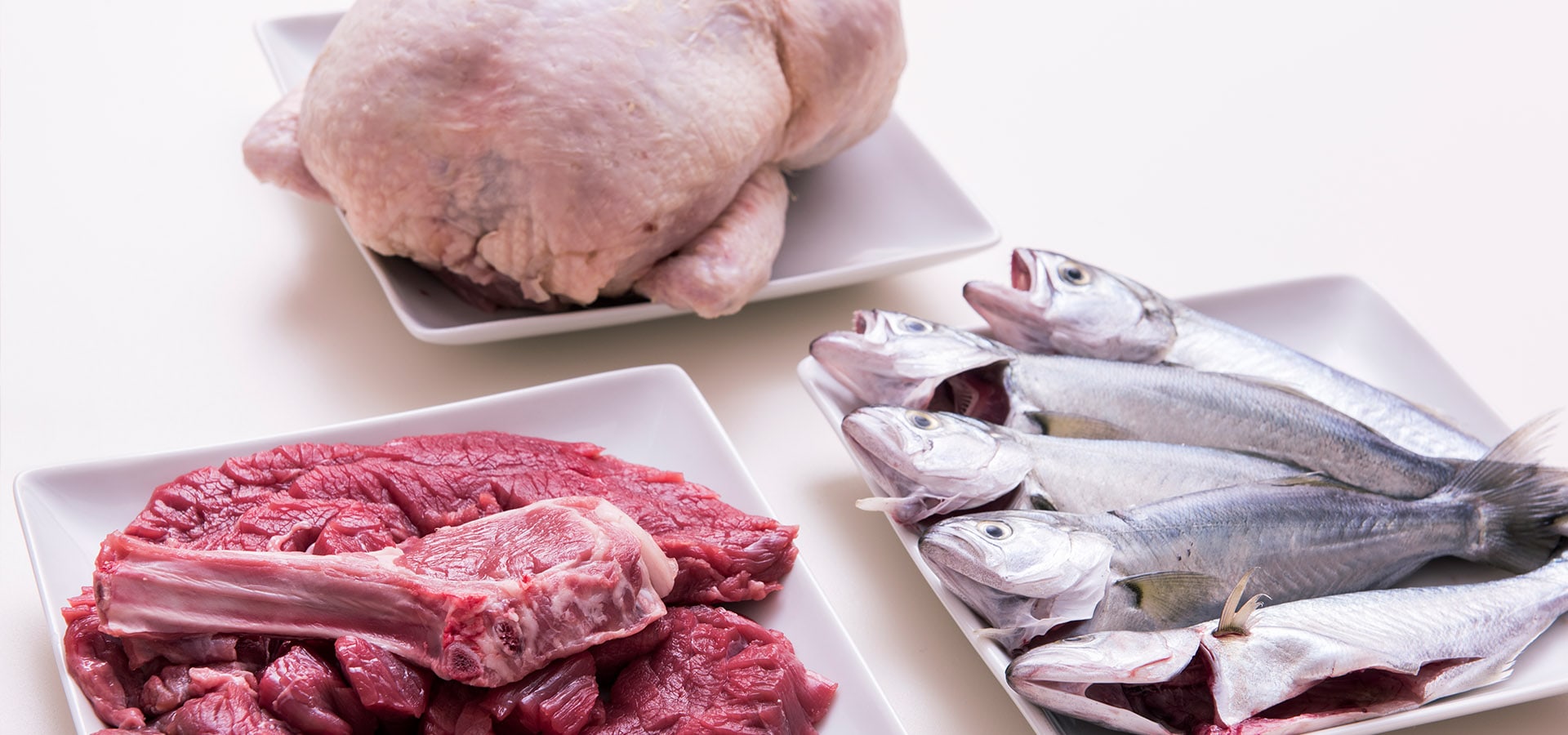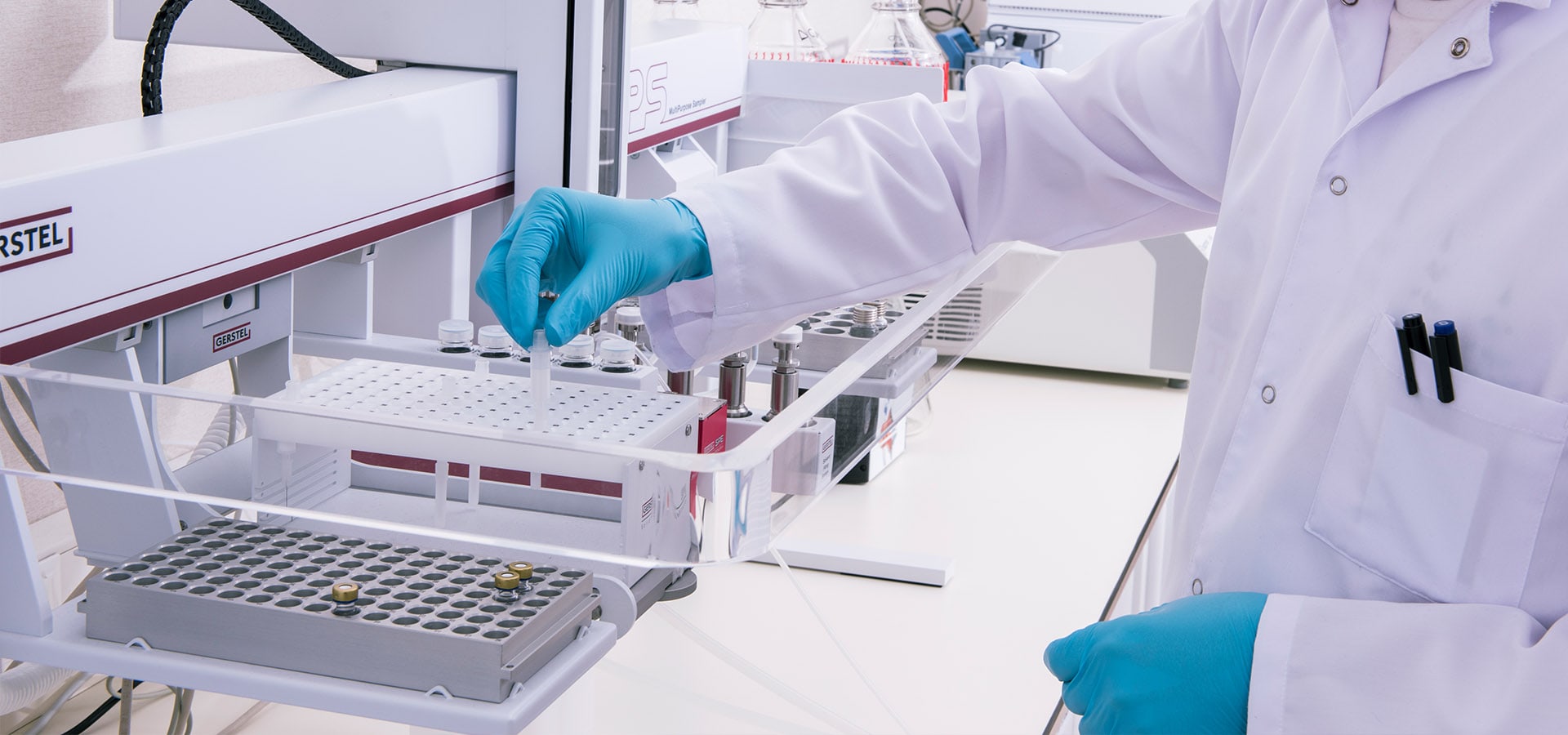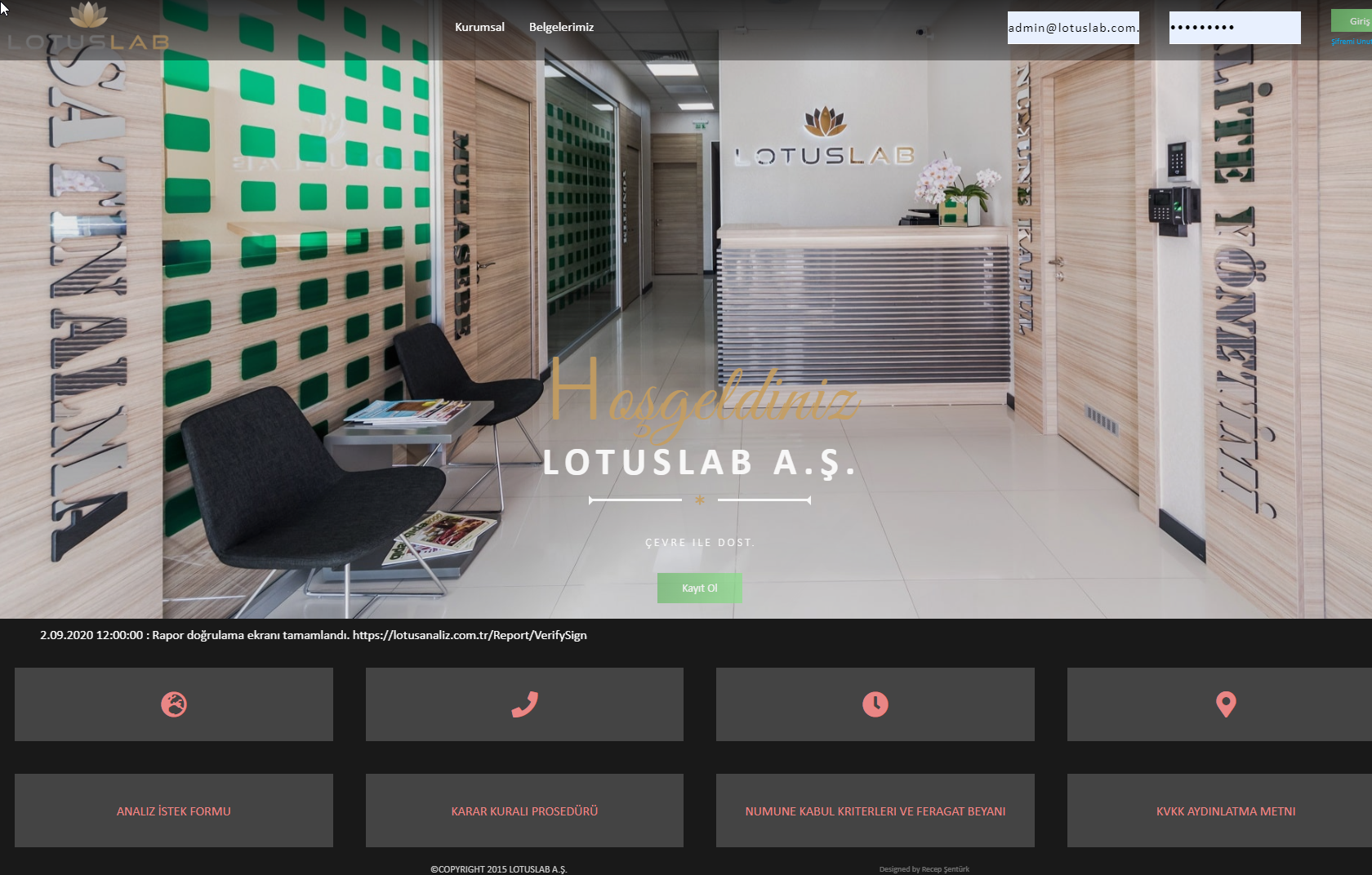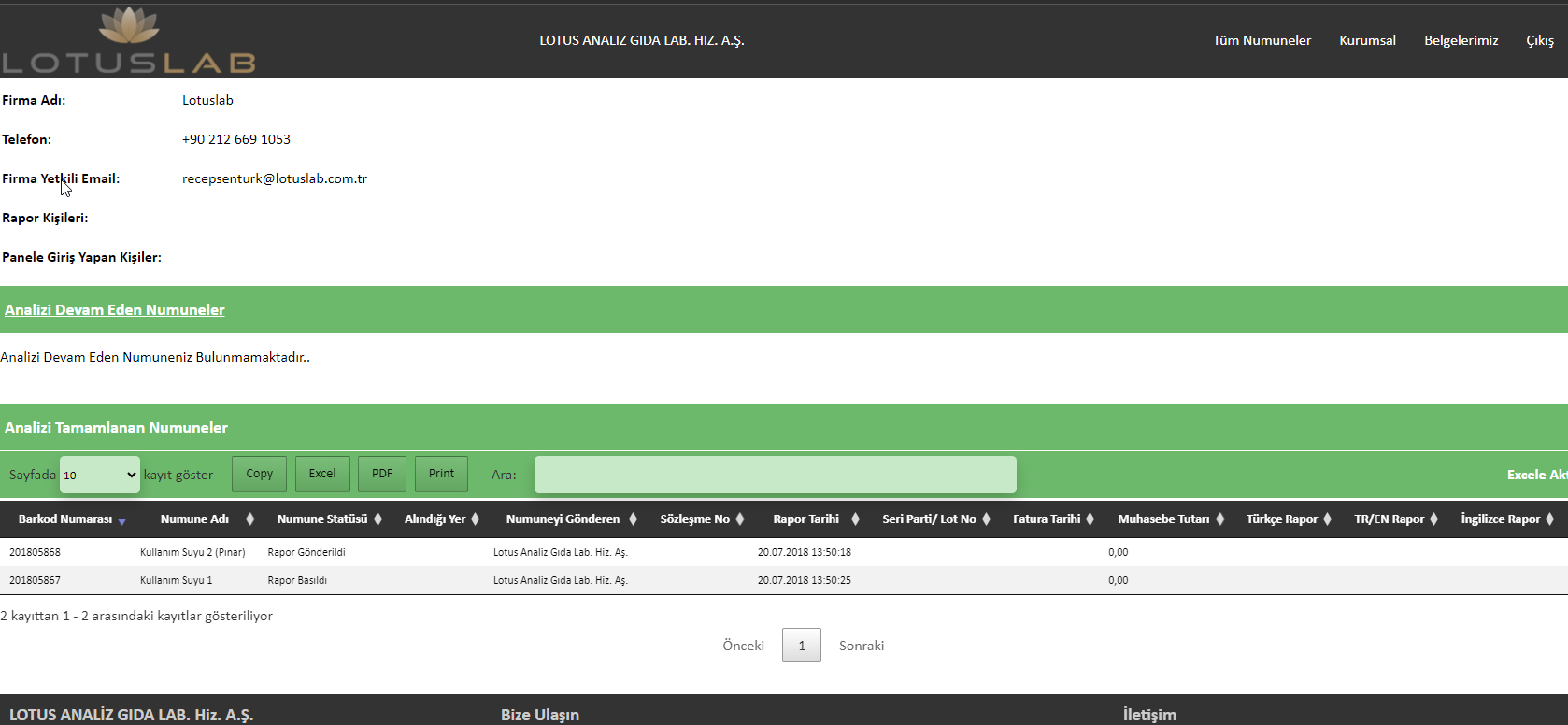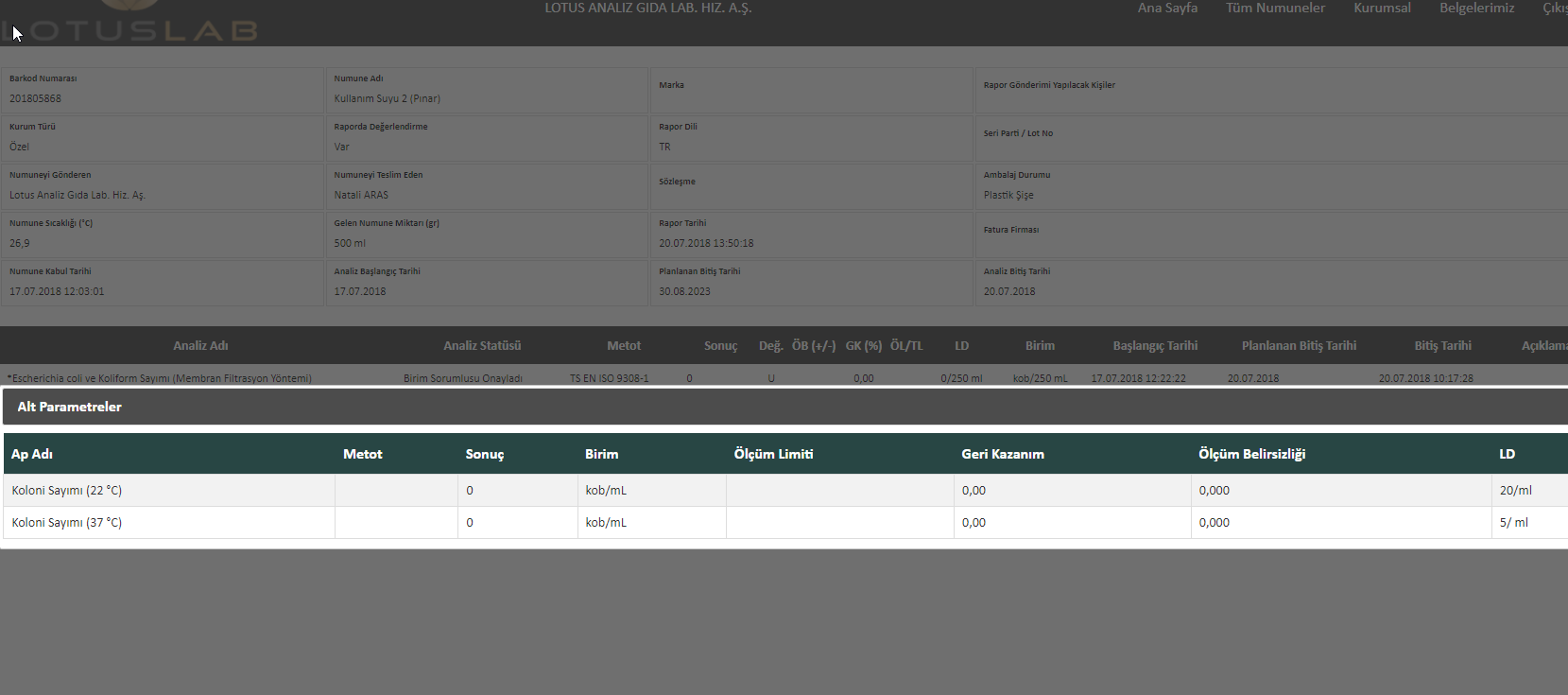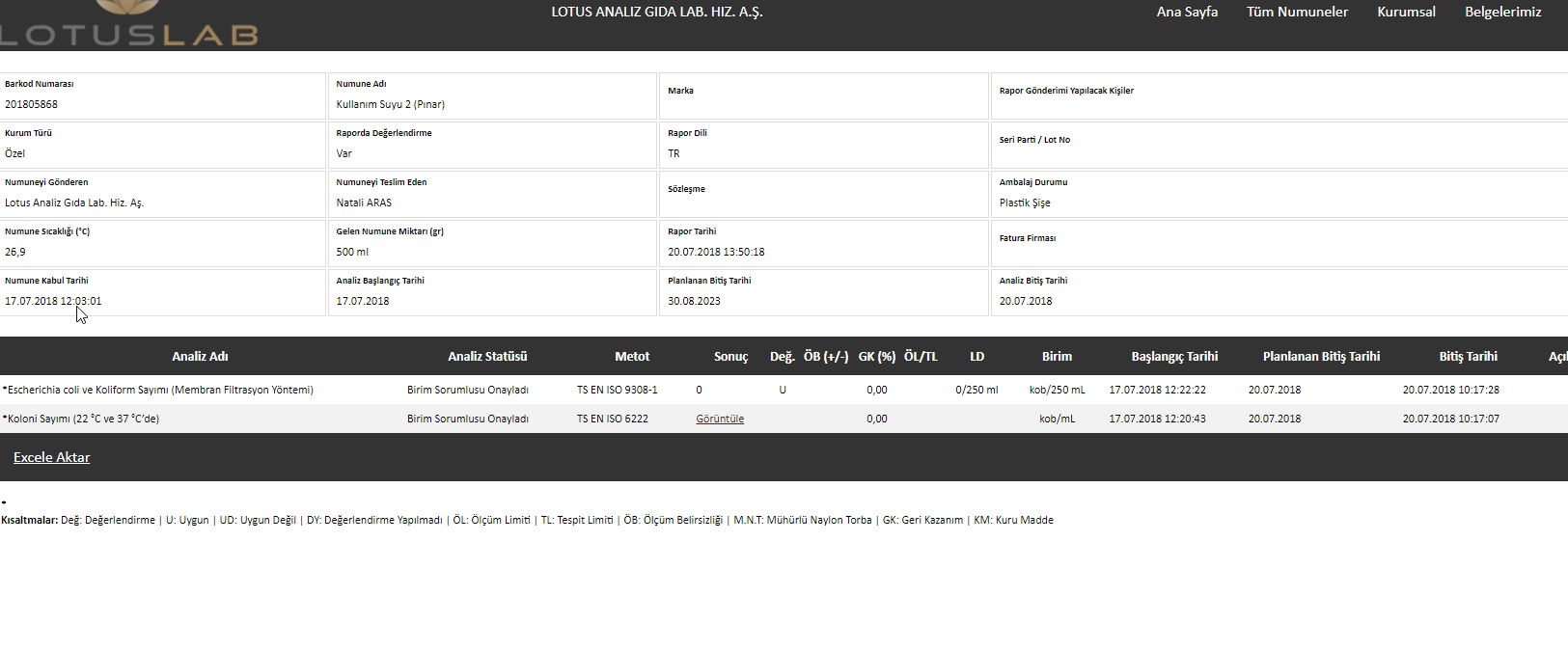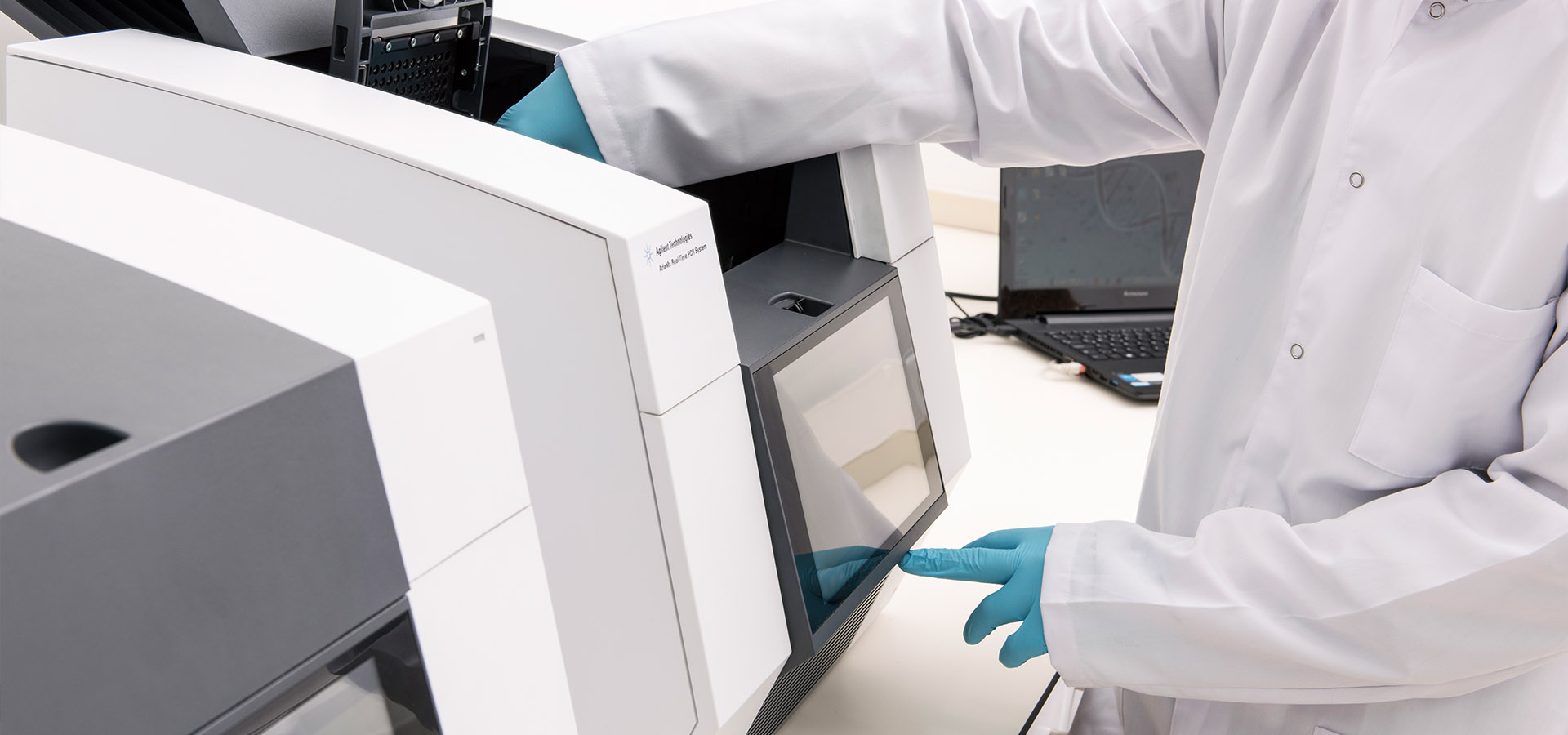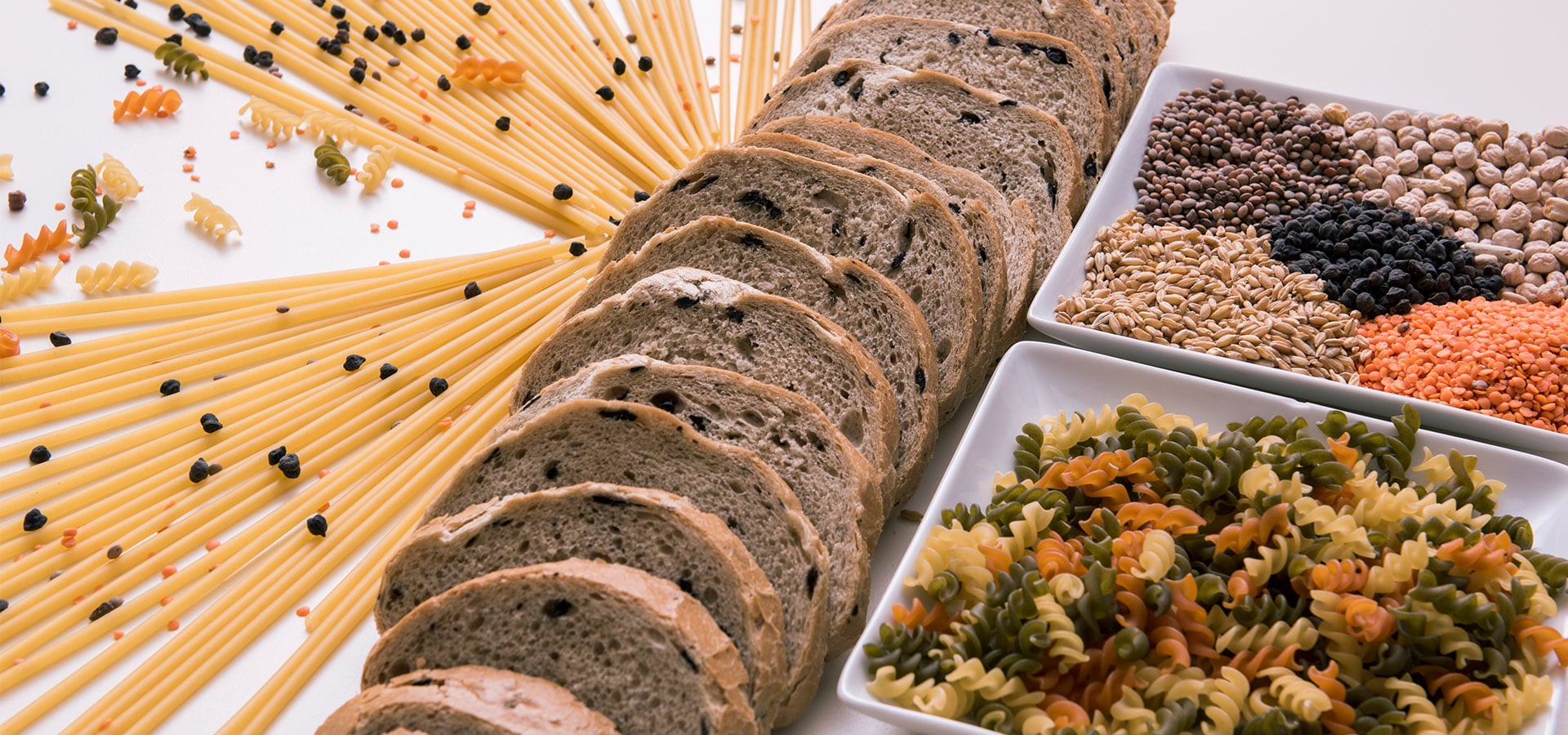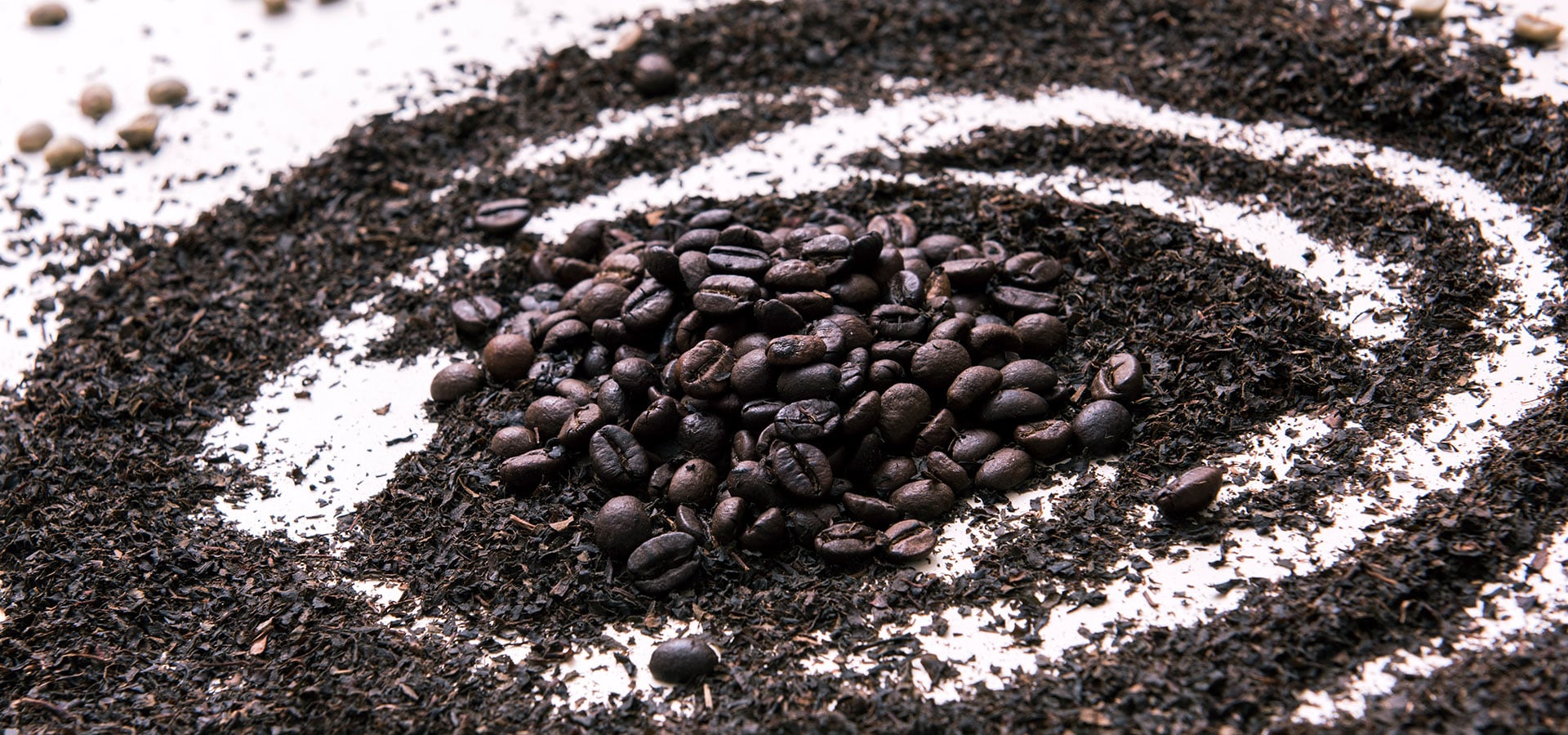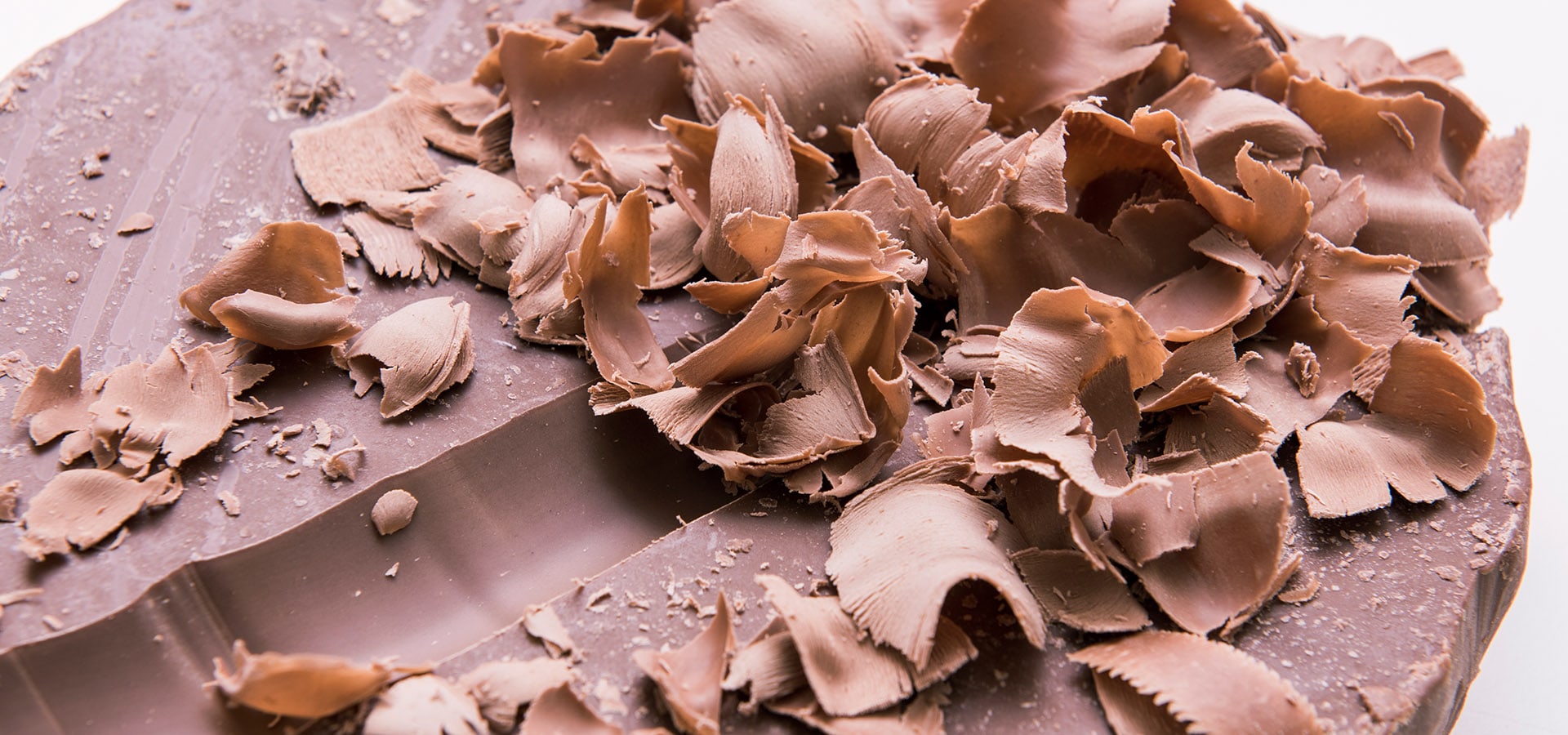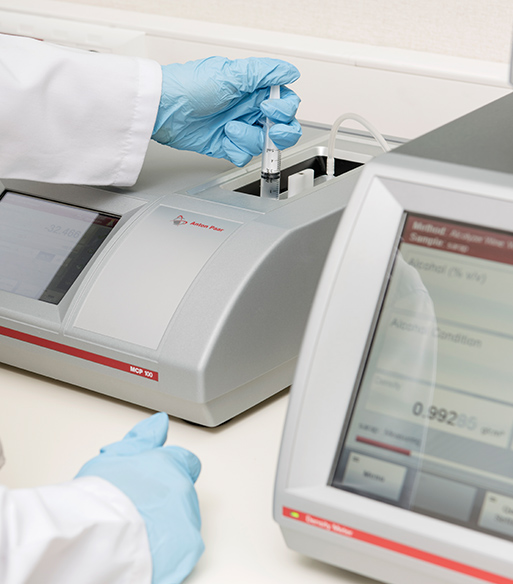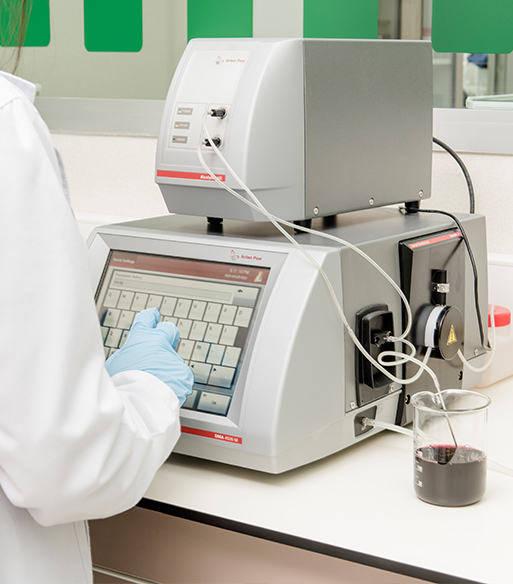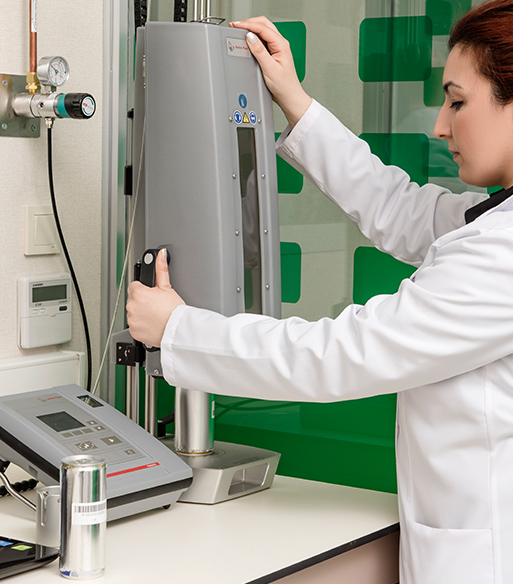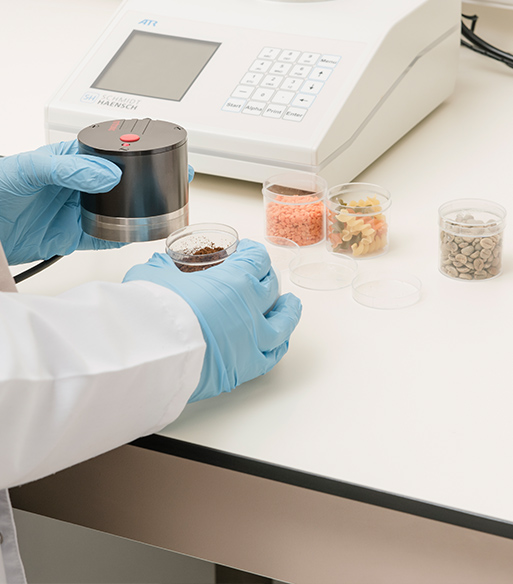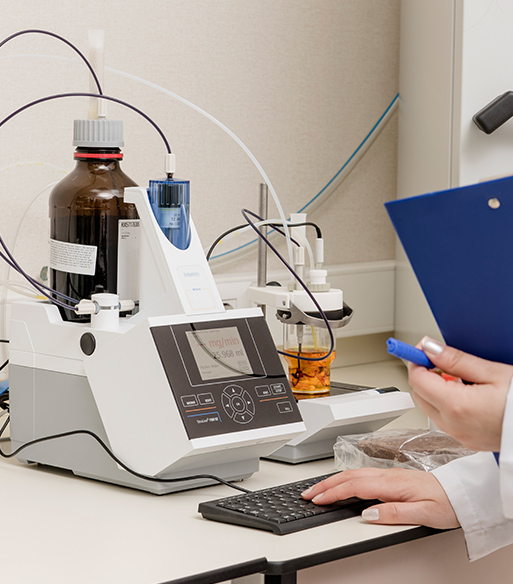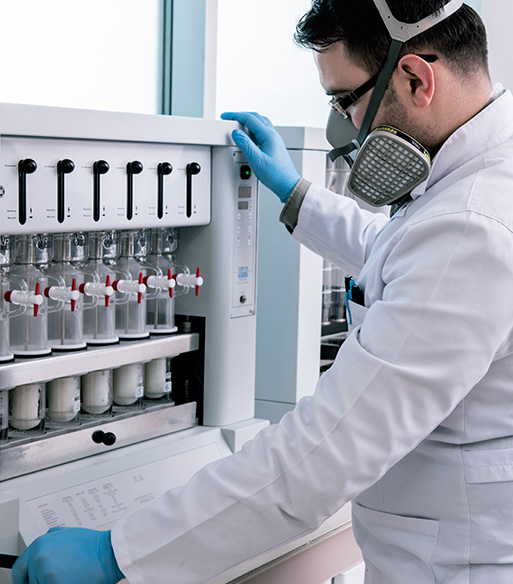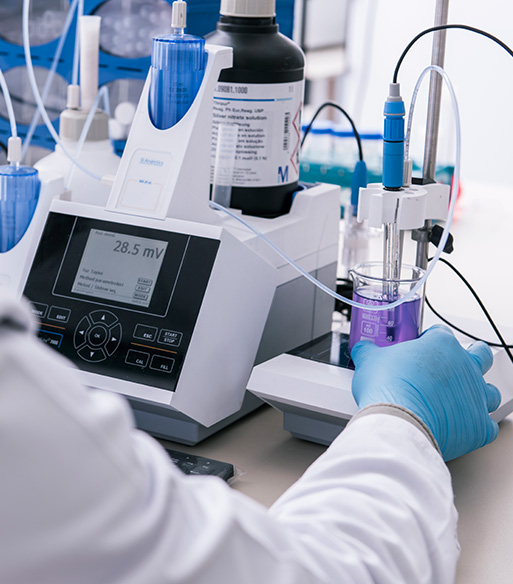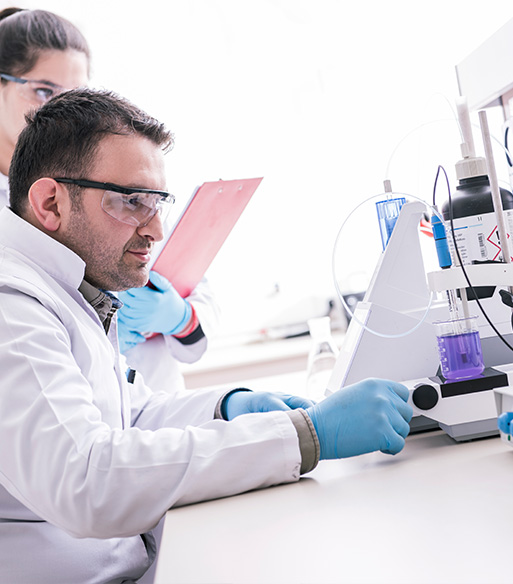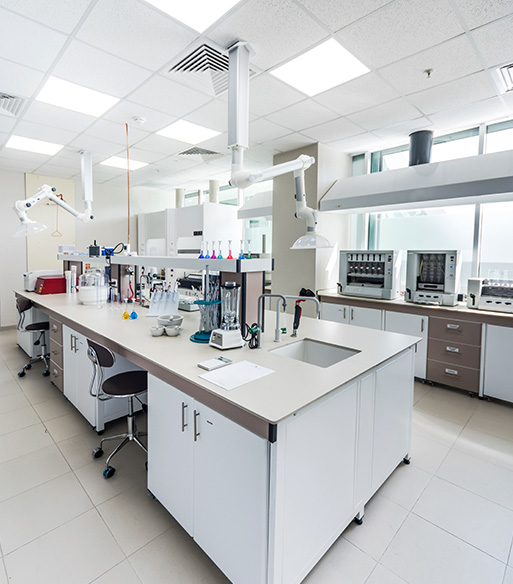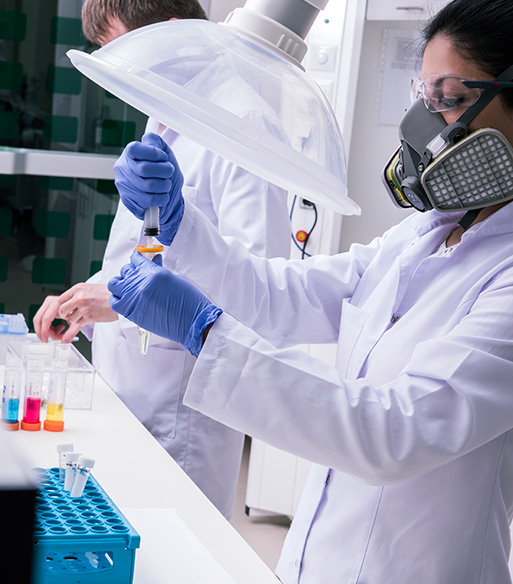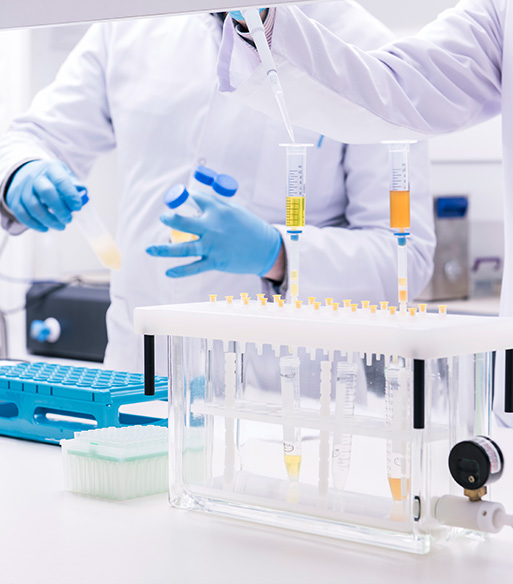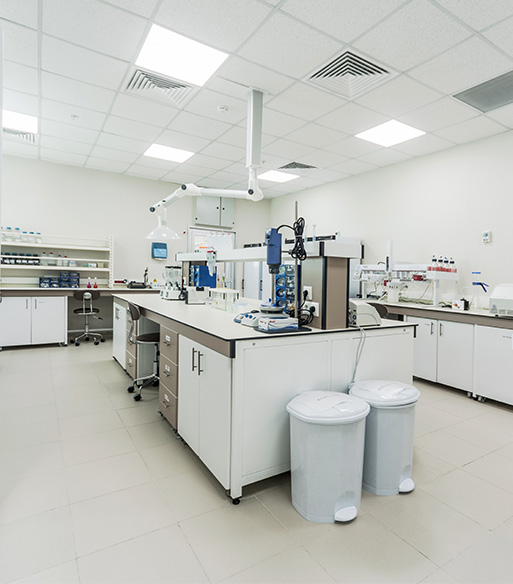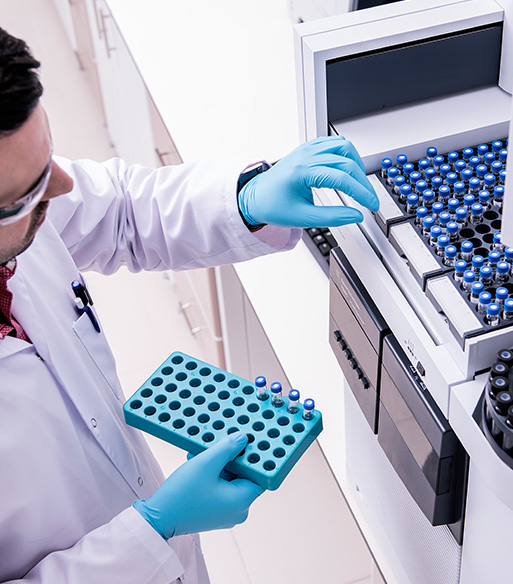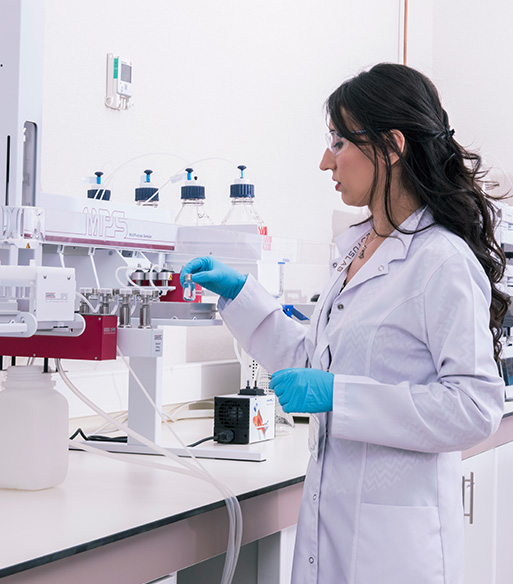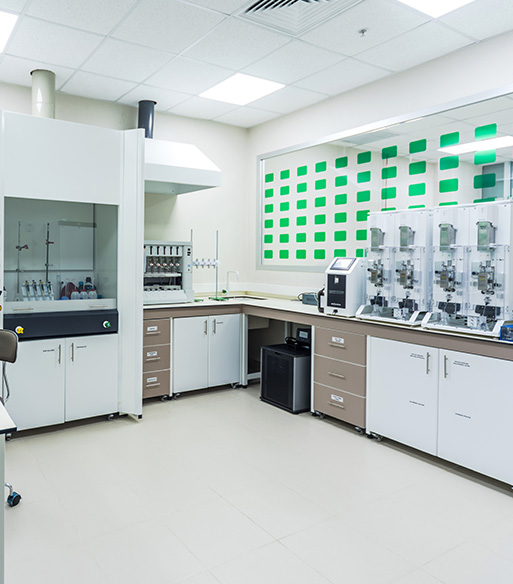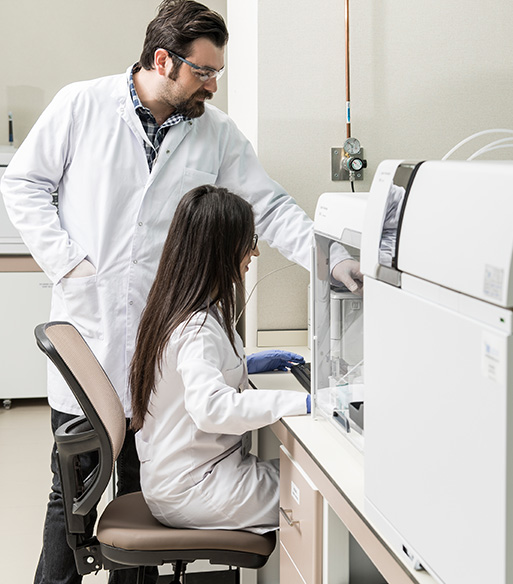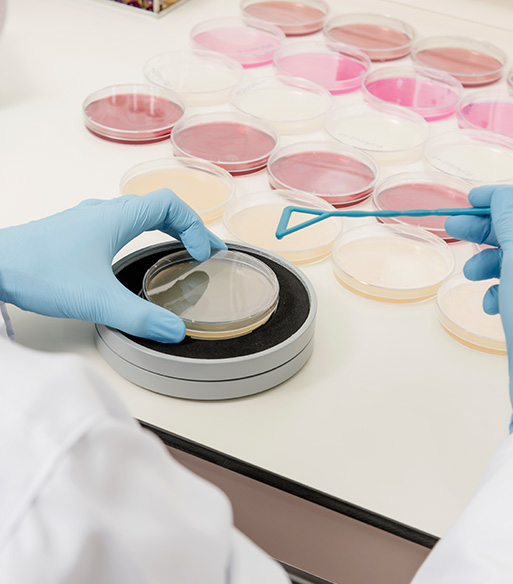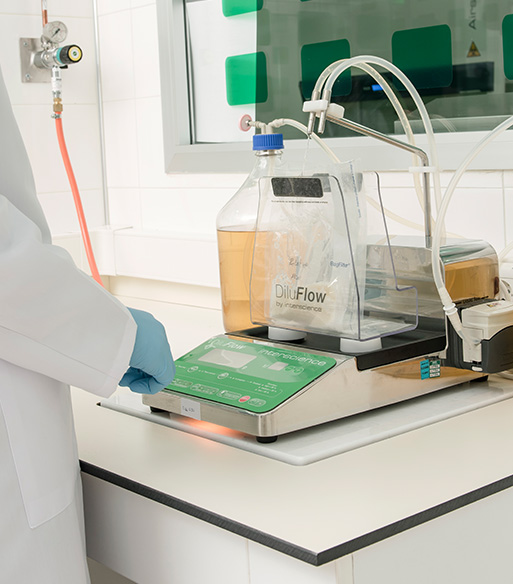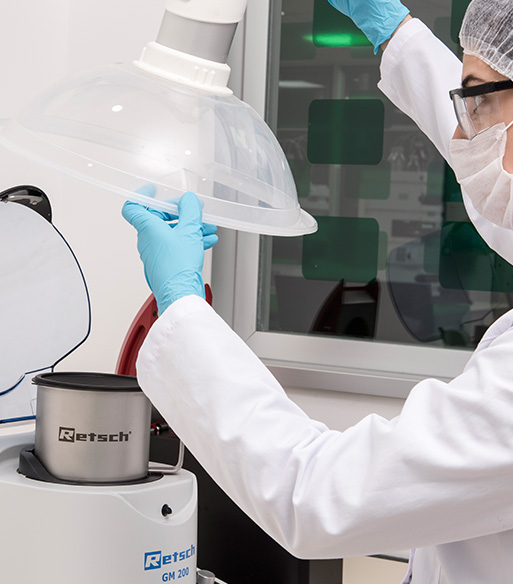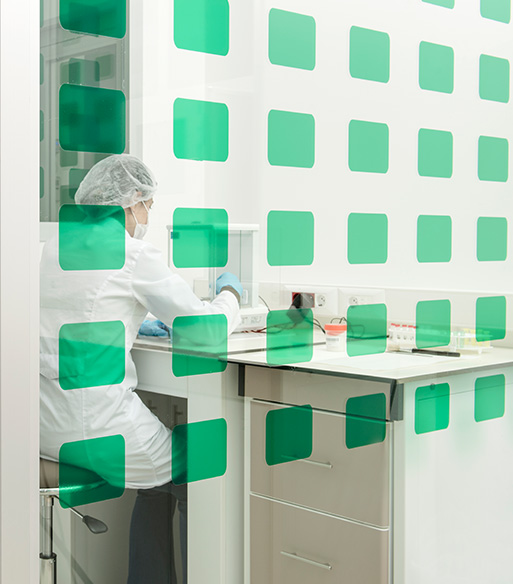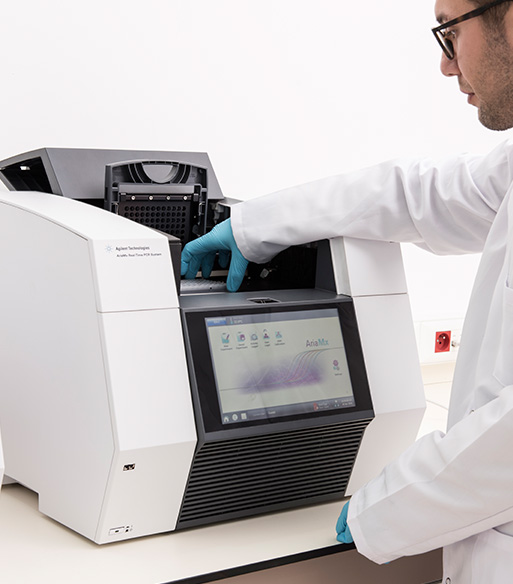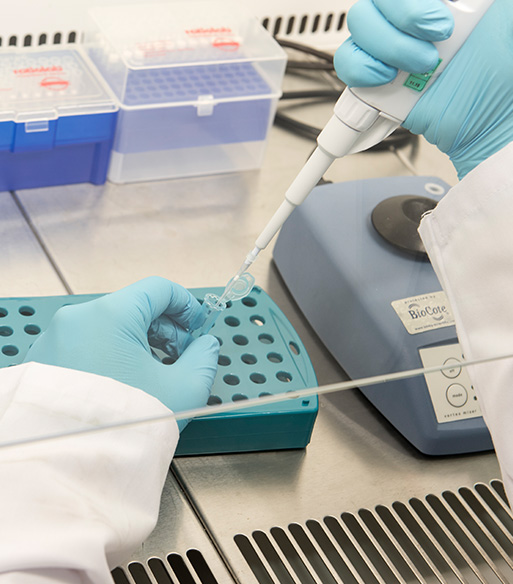Molecular Biology Analysis Laboratory
LOTUSLAB Molecular Biology and Genetics Laboratory consists of four different areas designed as separate rooms in accordance with the process flow principles. These are Sample Preparation (homogenization, weighing), DNA isolation area, PCR preparation step and PCR chamber with AGILENT AriaMx REAL TIME PCR device.
Access to the laboratory areas is provided by means of encrypted automatic doors and access to the laboratory by persons other than authorized is prevented. This ensures information confidentiality and operational safety, and minimizes any risk of contamination that may affect the analysis.
Laboratuvarımızda DNA ekstraksiyonlarında Eurofins (GENESpin), QIAGEN (DNeasy mericon Food Kit),
R-Biopharm (SureFood PREP Advanced, CONGEN) izolasyon kitleri kullanılmaktadır. Ayrıca özellikle
DNA miktarının az olduğu ve tespitinin zorlaştığı durumlarda DNA izolasyonu ANALYTIK-JENA /
InnuPure C16 cihazı kullanılmaktadır.
ANALYTIK-JENA / SpeedMill Plus sayesinde, öğütme esnasında parçalanmayan moleküllerin de
parçalanmasını sağlayarak DNA ların ortaya çıkması ve analizin daha doğru sonuçlara ulaşacak
şekilde yönlendirilmesini sağlamakta, aynı zamanda soğutucu sistemi sayesinde çalkalamadan dolayı
ortaya çıkan ısı enerjisini düşürerek çalışmasını gerçekleştirmektedir.
The risk of contamination is minimized by taking advantage of the pressure differences created in the working rooms air.
In our laboratory, Eurofins (GENESpin), QIAGEN (DNeasy mericon Food Kit), R-Biopharm (SureFood PREP Advanced, CONGEN) isolation kits are used in DNA extraction. In addition, DNA isolation ANALYTIK-JENA / InnuPure C16 is used especially when the amount of DNA is low and it is difficult to detect.
With ANALYTIK-JENA / SpeedMill Plus, it also enables the breakdown of non-degrading molecules during milling, enabling the formation of DNA and directing the analysis to reach more accurate results, while at the same time reducing the heat energy caused by agitation through the cooling system.
With the Christ / RVC 2-18CD DNA concentrator, a small amount of DNA can be condensed to make it more suitable for analysis and used in our laboratory as an easy and innovative application.
Plant – animal or microorganisms whose biological properties are transferred from a species other than their species by biotechnological methods are called “transgenic” or “genetically modified organisms” and these products are called as GMO (Genetically Modified Organisms). In this context, different inter-species gene transfer can be achieved.
GMO screening is conducted in accordance with the Biosafety Law and GMO Analysis Strategy instructions in food products. GMO screening analysis, kit and JRC analysis methods are used to detect p35s, tNOS, pFMV and Bar gene regions.
The GMO analyzes performed in the Molecular Biology and Genetics Laboratory are as follows;
GMO Screening Analysis (p35S / tNOS / pFMV) – Kit Method (Eurofins GeneScan)
GMO Screening Analysis (p35S / tNOS / pFMV / bar) – EURL Method (JRC)
Plant Specific Soybean Gene Screening – EURL Method
Plant Specific Corn Gene Screening – EURL Method
Plant Specific Cotton Gene Screening – EURL Method
GMO Type Determination (Event Specific) – EURL Method
What is Species Determination?
Since meat is one of the main foodstuffs which are very important in human nutrition especially in terms of protein source, meat trade has increased rapidly in recent years. For this reason, cheating and adulteration have increased during the delivery of meat and meat products to consumers. In this respect, the identification of meat types is important in terms of protecting consumers and preventing fraud. Food safety; detection of different types of meat mixed with food for cheating; protection of consumer health and prevention of unfair competition. Species Determination, which is a very important analysis in cheating and adulteration analysis, is carried out with AGILENT AriaMx REAL time PCR device with eurofins and Analytik-Jena species determination kits in our Molecular Biology Laboratory. Cattle, fish, pig, chicken, horse, turkey, donkey DNA are searched for species determination.
Meat Species Analysis in Molecular Biology and Genetics Laboratory is as follows;
Species Determination (Pig DNA Search)
Species Determination (Fish DNA Search)
Species Identification (Horse DNA Search)
Species Determination (Donkey DNA Search)
Species Determination (Cattle DNA Search)
Species Determination (Chicken DNA Search)
Species Determination (Searching for Turkey DNA)
